Alphabetizing Worksheets for Ages 5-7
5 filtered results
-
From - To
Unlock the world of letters with our engaging Alphabetizing Worksheets for ages 5-7! These interactive printables are designed to help young learners develop essential alphabetizing skills while having fun. Featuring charming illustrations and playful activities, each worksheet guides children through categorizing and ordering letters and simple words. By practicing with these specially crafted exercises, kids enhance their memory, concentration, and literacy foundations. Perfect for both classroom and home use, our worksheets provide an enjoyable way to master the basics of reading and writing. Download today and watch your child’s confidence in their alphabet grow!
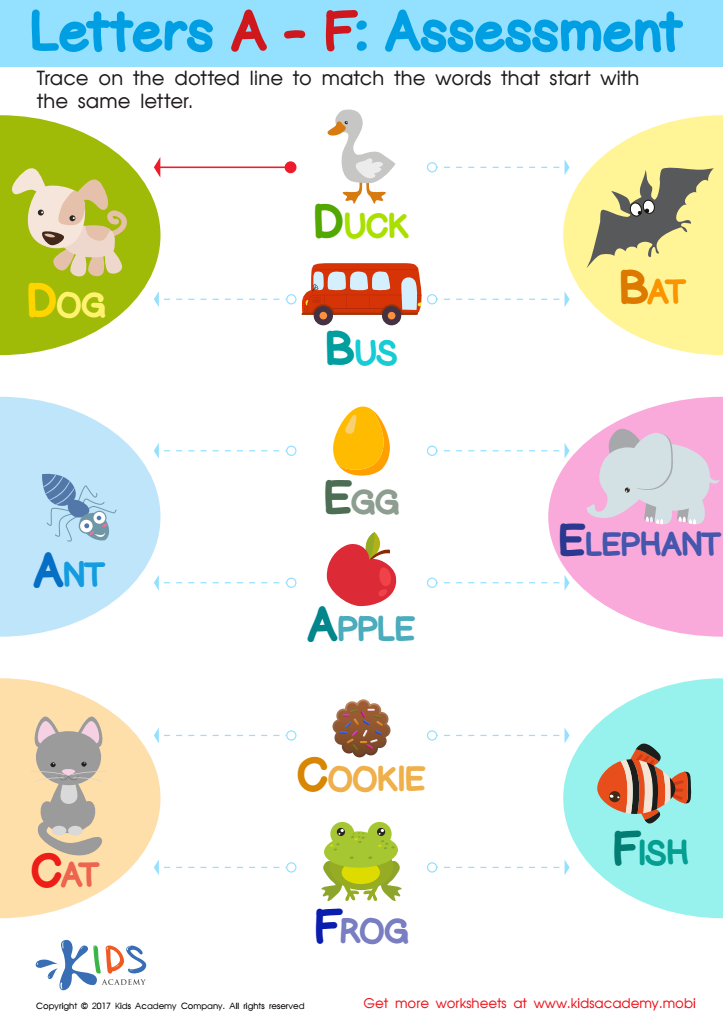

Letters A - F Worksheet
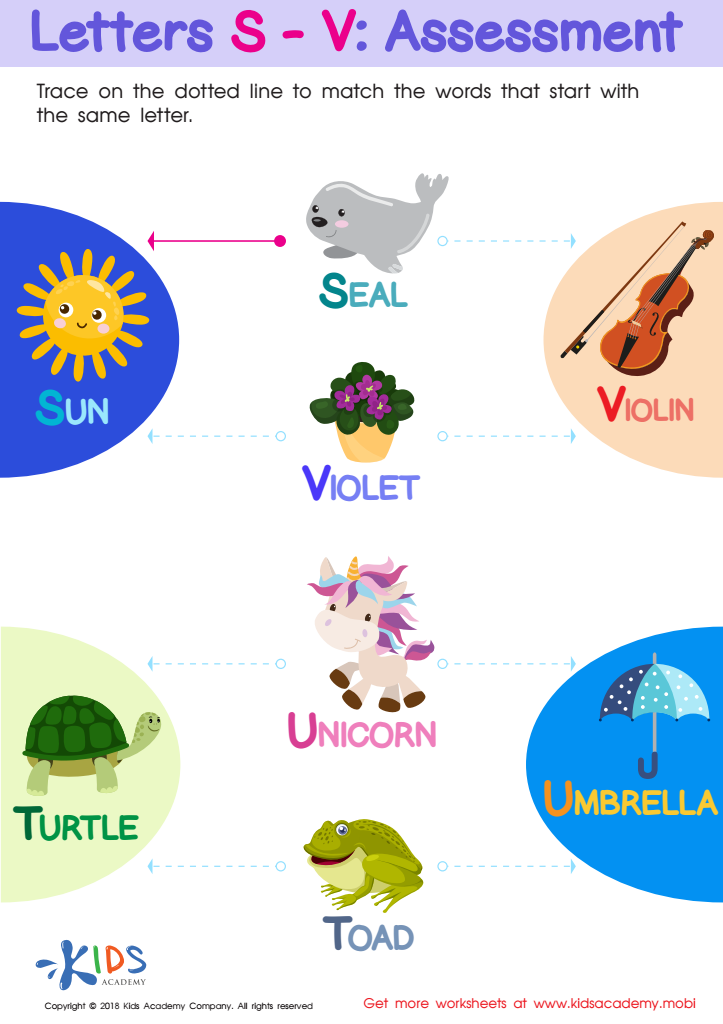

Letters S - V Tracing Worksheet
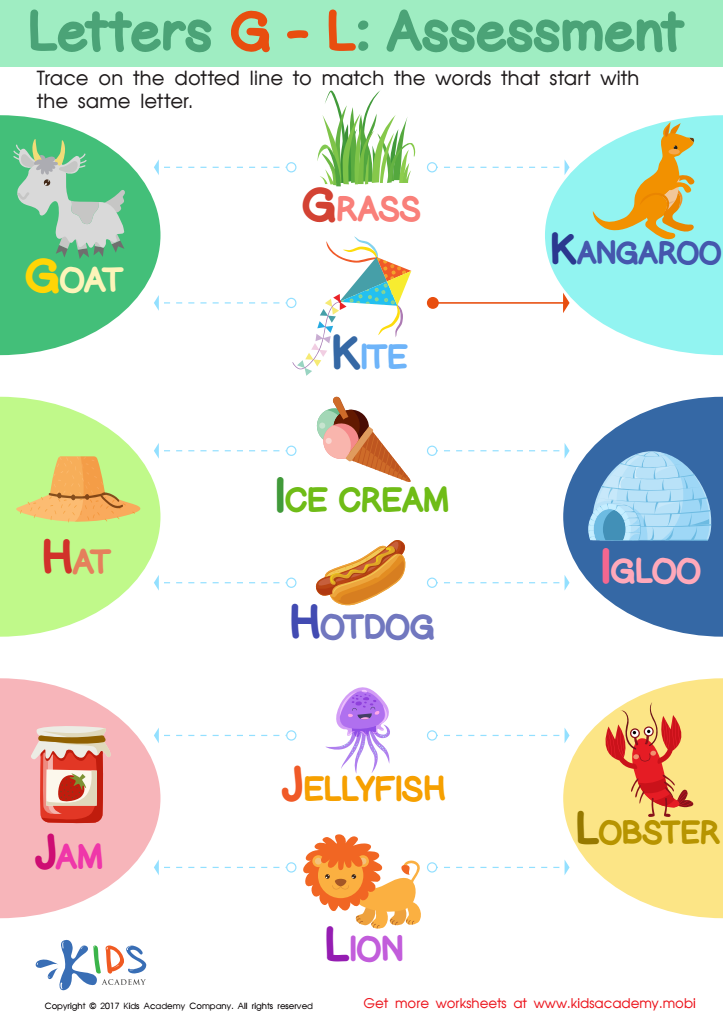

Letters G-L Worksheet
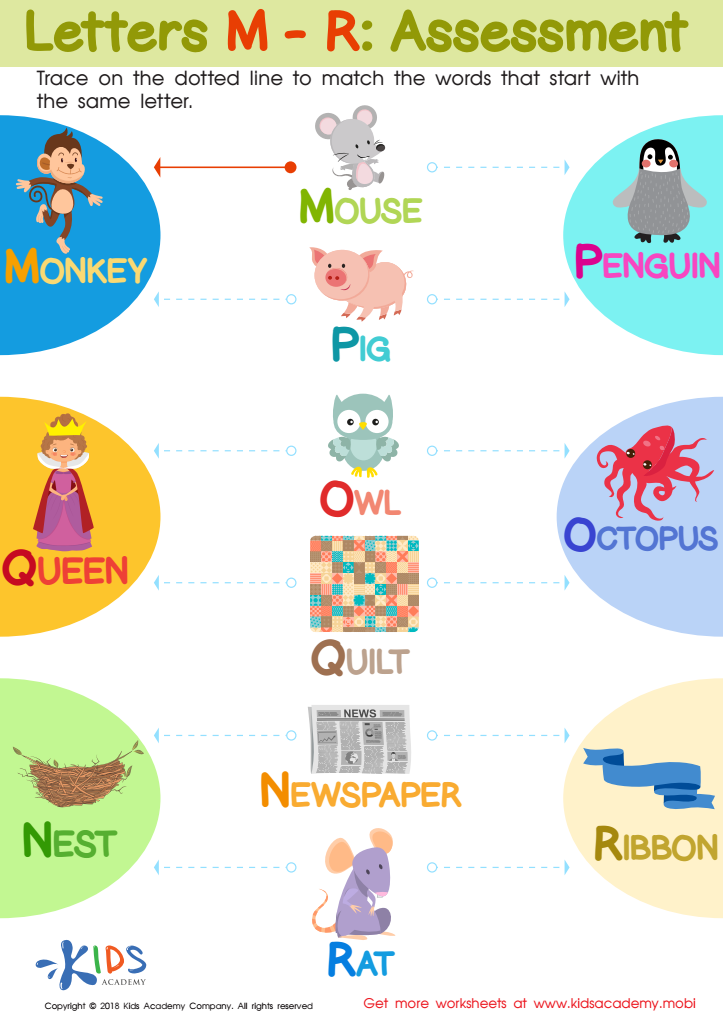

Letters M-R Tracing Worksheet
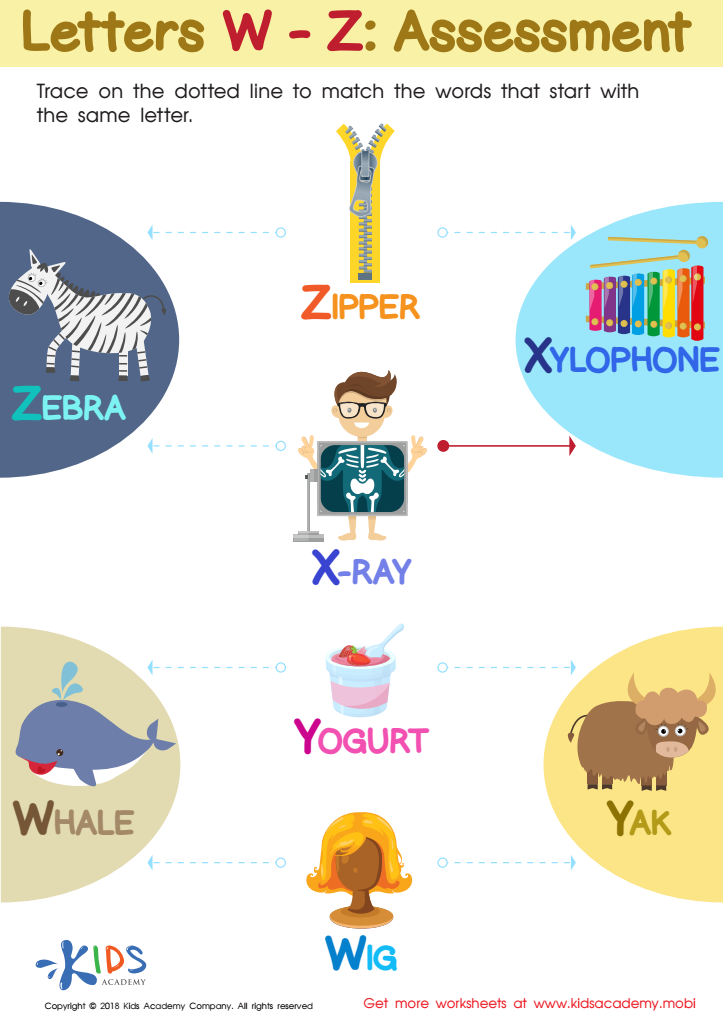

Letters W–Z Tracing Worksheet
Alphabetizing is an essential skill for children aged 5-7 that parents and teachers should prioritize because it lays the groundwork for literacy and organizational skills. At this formative age, children are learning to recognize letters and understand their sequence. This foundation is crucial for their reading development as it helps with the ability to look up words in dictionaries, understand alphabetical order in classroom materials, and navigate bookshelves effectively.
Alphabetizing assists children in developing cognitive abilities such as memory and attention to detail. It encourages them to focus on letter shapes and sounds, fostering phonemic awareness which is key in reading competency. Mastery of the alphabet order also aids vocabulary expansion; kids can quickly retrieve words and comprehend their structures, thus speeding up language acquisition.
Moreover, learning to alphabetize nurtures organizational skills. It allows children to systematically arrange information, an ability beneficial not just in academics but in everyday tasks. When children grasp these concepts early on, they are less likely to struggle with more complex organizational tasks later in life.
By prioritizing alphabetizing skills, parents and teachers equip children with tools that enhance both their academic and everyday capabilities, paving the way for successful lifelong learning and functional independence.

 Assign to the classroom
Assign to the classroom





